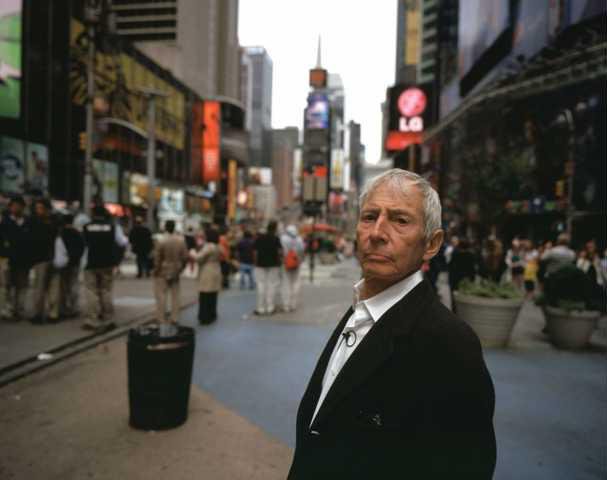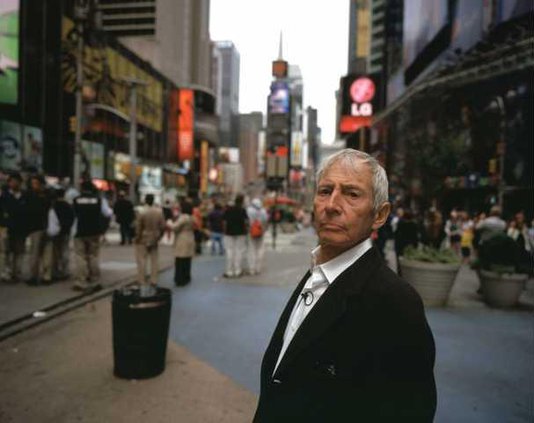Lovers of the hit true-crime podcast "Serial" and HBO subscribers have been hailing "The Jinx," the gripping HBO crime documentary that earned the network more than 1 million viewers for its Sunday finale.
The film retreads the life of New York real estate titan Robert Durst, who was suspected but never convicted in the murders of his wife, best friend and neighbor between 1982 and 2001. As Buzzfeed reported, the documentary makes the case that as the son of a wealthy family, Durst's wealth and family influence likely played a big part in Durst's freedom.
Durst was arrested in New Orleans the night before the documentary's sixth and final installment aired. Slate reported that Durst's attorney said he found it "no coincidence" that the arrest came on the eve of the film finale.
Like "Serial" before it, "The Jinx" has the media playing detective for law enforcement long after the cases have been closed arguably, what journalists should be doing, the Poynter Institute told the AP.
"Perhaps the most compelling thing about 'The Jinx' is that it's set the wheels of justice in motion again," echoed the Atlantic's David Sims.
But not everyone thinks it's being done completely responsibly.
Buzzfeed's Anne Helen Petersen called "The Jinx" an exercise in manipulation.
"The entire sixth episode wouldnt have nearly as much power if not for the editing choices of filmmaker Andrew Jarecki and his team, including a timeline that seems to have been significantly manipulated at several points to create a more linear and compelling narrative," Petersen wrote. "Documentary can educate. It can enlighten. But its also an art and the product of humans and their very real prejudices, opinions, subjectivities."
The Boston Globe's Ty Burr, questioned the "convenient" timing of Durst's arrest, along with New York Times front-page coverage of the show's finale, given that Times reporter Charles V. Bagli was interviewed at length for the documentary.
"Why complain when everybody wins: HBO, the filmmakers, the Times, viewers who had been following from the start," Burr wrote. "Everyone but Durst, that is, and any old-school cranks concerned with what happens to news when it gets turned into entertainment."
The audience, Burr argued, should be looking at itself as hard as it looks at subjects like Durst.
"What does it say about the state of our culture when the news of Dursts arrest was greeted with dismay in various online outposts as a spoiler, Burr wrote, "as if 'The Jinx' were the latest 'Star Wars' movie and Durst had turned out to be Lukes father?"
The film retreads the life of New York real estate titan Robert Durst, who was suspected but never convicted in the murders of his wife, best friend and neighbor between 1982 and 2001. As Buzzfeed reported, the documentary makes the case that as the son of a wealthy family, Durst's wealth and family influence likely played a big part in Durst's freedom.
Durst was arrested in New Orleans the night before the documentary's sixth and final installment aired. Slate reported that Durst's attorney said he found it "no coincidence" that the arrest came on the eve of the film finale.
Like "Serial" before it, "The Jinx" has the media playing detective for law enforcement long after the cases have been closed arguably, what journalists should be doing, the Poynter Institute told the AP.
"Perhaps the most compelling thing about 'The Jinx' is that it's set the wheels of justice in motion again," echoed the Atlantic's David Sims.
But not everyone thinks it's being done completely responsibly.
Buzzfeed's Anne Helen Petersen called "The Jinx" an exercise in manipulation.
"The entire sixth episode wouldnt have nearly as much power if not for the editing choices of filmmaker Andrew Jarecki and his team, including a timeline that seems to have been significantly manipulated at several points to create a more linear and compelling narrative," Petersen wrote. "Documentary can educate. It can enlighten. But its also an art and the product of humans and their very real prejudices, opinions, subjectivities."
The Boston Globe's Ty Burr, questioned the "convenient" timing of Durst's arrest, along with New York Times front-page coverage of the show's finale, given that Times reporter Charles V. Bagli was interviewed at length for the documentary.
"Why complain when everybody wins: HBO, the filmmakers, the Times, viewers who had been following from the start," Burr wrote. "Everyone but Durst, that is, and any old-school cranks concerned with what happens to news when it gets turned into entertainment."
The audience, Burr argued, should be looking at itself as hard as it looks at subjects like Durst.
"What does it say about the state of our culture when the news of Dursts arrest was greeted with dismay in various online outposts as a spoiler, Burr wrote, "as if 'The Jinx' were the latest 'Star Wars' movie and Durst had turned out to be Lukes father?"








